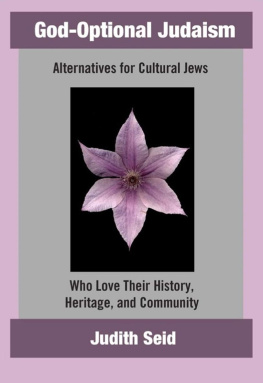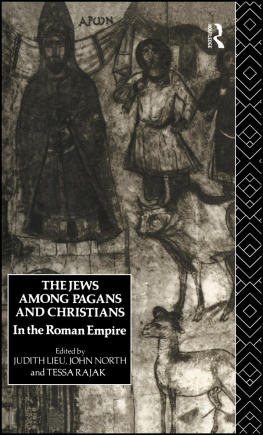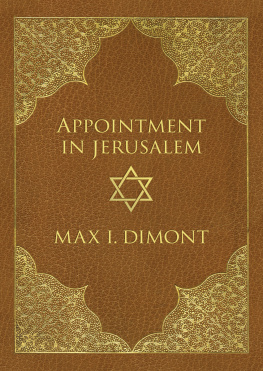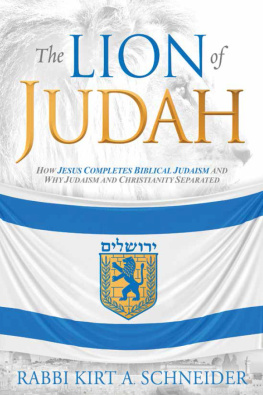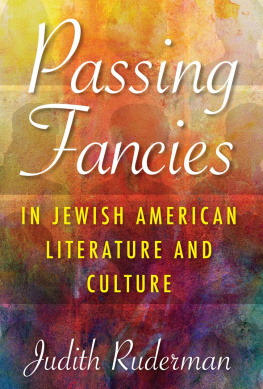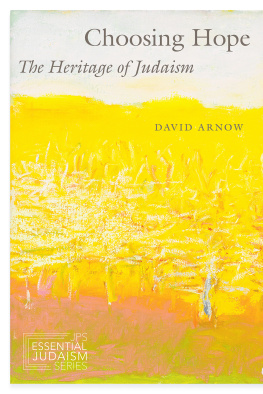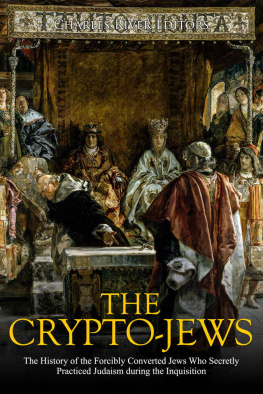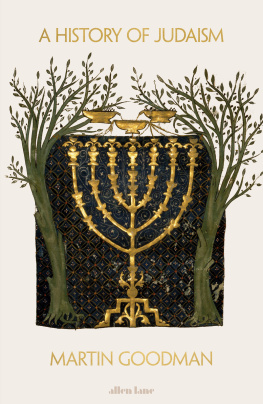Judith Seid - God-Optional Judaism: Alternatives for Cultural Jews Who Love Their History, Heritage, & Community
Here you can read online Judith Seid - God-Optional Judaism: Alternatives for Cultural Jews Who Love Their History, Heritage, & Community full text of the book (entire story) in english for free. Download pdf and epub, get meaning, cover and reviews about this ebook. year: 2018, publisher: Intl Inst for Secular Humanistic Judaism, genre: Religion. Description of the work, (preface) as well as reviews are available. Best literature library LitArk.com created for fans of good reading and offers a wide selection of genres:
Romance novel
Science fiction
Adventure
Detective
Science
History
Home and family
Prose
Art
Politics
Computer
Non-fiction
Religion
Business
Children
Humor
Choose a favorite category and find really read worthwhile books. Enjoy immersion in the world of imagination, feel the emotions of the characters or learn something new for yourself, make an fascinating discovery.
- Book:God-Optional Judaism: Alternatives for Cultural Jews Who Love Their History, Heritage, & Community
- Author:
- Publisher:Intl Inst for Secular Humanistic Judaism
- Genre:
- Year:2018
- Rating:3 / 5
- Favourites:Add to favourites
- Your mark:
- 60
- 1
- 2
- 3
- 4
- 5
God-Optional Judaism: Alternatives for Cultural Jews Who Love Their History, Heritage, & Community: summary, description and annotation
We offer to read an annotation, description, summary or preface (depends on what the author of the book "God-Optional Judaism: Alternatives for Cultural Jews Who Love Their History, Heritage, & Community" wrote himself). If you haven't found the necessary information about the book — write in the comments, we will try to find it.
Judith Seid: author's other books
Who wrote God-Optional Judaism: Alternatives for Cultural Jews Who Love Their History, Heritage, & Community? Find out the surname, the name of the author of the book and a list of all author's works by series.
God-Optional Judaism: Alternatives for Cultural Jews Who Love Their History, Heritage, & Community — read online for free the complete book (whole text) full work
Below is the text of the book, divided by pages. System saving the place of the last page read, allows you to conveniently read the book "God-Optional Judaism: Alternatives for Cultural Jews Who Love Their History, Heritage, & Community" online for free, without having to search again every time where you left off. Put a bookmark, and you can go to the page where you finished reading at any time.
Font size:
Interval:
Bookmark:

God-Optional Judaism: Alternatives for Cultural Jews Who Love Their History, Heritage, and Community. First edition copyright @ 2001 by Judith Seid. This edition copyright 2018 by Judith Seid. All rights reserved. No part of this book may be used or reproduced in any manner whatsoever without written permission from the publisher except in the case of brief quotations embodied in critical articles or reviews.
2018 E-book ISBN 978-1-941718-04-9
E-book edition produced by the International Institute for Secular Humanistic Judaism North American Section.
2017 Print edition ISBN 978-0-9903524-8-8
Published by Blue Thread Books. Available from Jewish Currents, www.jewishcurrents.org.
Table of Contents
Marian believes in the power of prayer. She just doesnt believe theres anyone shes praying to. I believe that praying creates an energy for good in the world, she explains. I dont feel that Im praying to someone who then acts on those prayers. Instead, its like my prayers spread out away from me in every direction, and that energy creates goodness and help.
Now in her fifties, Marian joined a Reform temple when her children were small. She brought her girls to religious school but never felt at home at the synagogue, and she stopped attending when they left for college. Her belief in an external god had waned over the years, and she reached a final break with traditional belief when Orthodox relatives made unkind comments about the Jewish status of her daughters, who are adopted. I realized then that I couldnt believe in a god who would make people act mean and stupid, she says. But I still feel intensely Jewish. I crave that Jewish connection.
Like many who grew up in religious Jewish traditions, Marian cant imagine not being part of the Jewish community, but feels that she cant let her true beliefs be known. I dont talk much about what I believe, she says. Its personal. And I dont want people to judge me.
The rabbi of Marians congregation acknowledges that many of his congregants are not traditional believers. Probably more than half of them are atheists or agnostics, is his off-the-cuff estimate. His Conservative colleague in their small midwestern college town has a similar estimate. His guess is that up to one-third of his congregants dont believe in a self-conscious god who acts in history and in peoples lives.
These estimates were confirmed in a poll of Los Angeles Jews (commissioned in 1998 by the Jewish Federation of Greater Los Angeles and reported in the Secularist Jewish magazine Jewish Currents, among other periodicals). Only 41 percent said they have no doubts about the existence of some sort of personal god. The more contemporary and much-discussed 2013 Pew poll about American Jewish life reported 22 percent of Jews describe themselves as having no religion. Among the millennial generation, Pew reported one- third identifying as Jewish through ancestry, ethnicity or culture, but not religion.
In the same Pew poll, the Reform movement claimed 35 percent of Americas estimated 5.5 million Jews as members, and the Conservative movement claimed 18 percent. If the polls and the rabbis estimates are correct and representative, there are over 1 million North American Jews who belong to religious congregations but dont believe fully in the religion taught there.
The Reform and Conservative rabbis were speaking about Jews affiliated with synagogues. But what about those who dont belong to religious congregations? The 1990 National Jewish Population Survey showed that only half of Americas Jews, representing 41 percent of Jewish households, were affiliated with any congregation. The above-mentioned Los Angeles poll showed only about one-third belonging to synagogues, and the 2013 Pew poll confirmed that number.
Of course, many committed Jews are members of Jewish community centers or social action groups such as the Anti-Defamation League, the Organization for Rehabilitation and Training (ORT, a womens organization that provides education and training for Jews and non-Jews throughout the world), Hadassah, J Street, the National Council of Jewish Women, or hundreds of others. Nevertheless, it is safe to say that while most American Jews do affiliate with a congregation at one time or another, at any given time at least half of Americas Jews are essentially unaffiliated. Families tend to affiliate with synagogues when there are school-age children present, in response to family pressures or their own feelings that their kids need some education about their heritage. Because many Jewish parents had little Jewish education themselves, have little to do with the organized Jewish community, and perform little that is ritually Jewish in the home, they feel they cannot adequately educate their children themselves, and so, in order to get some any Jewish education for their children, they allow their children to be taught things that they themselves do not believe. They affiliate with the temple or synagogue their friends or their childrens friends attend, and after their children become bar or bat mitzvah, most drop their memberships. Religious congregations are not meeting their needs as Jews.
Karen and Ray fit this pattern of sometime affiliation. Both were raised in liberal Jewish households, but neither belonged to a warm, caring congregation, and neither felt the sense of community they were searching for. As adults, they joined an Orthodox congregation that offered them warmth and caring, and they remained members for years, enjoying the community and the fervor of the celebrations but never quite believing in the religion they were taught. Finally, the dissonance between their beliefs and their actions made it impossible for them to remain Orthodox, and not finding the commitment, depth, and passion that they wanted in other movements, they dropped out of Jewish life entirely.
Karen and Ray thought that they could not have access to Jewish heritage without dogmatic religion. They believed that they could not do or say Jewish things that didnt include statements of belief in and praise of a powerful, sometimes vengeful god who meddled in human lives and history.
Several years later, after moving to the Midwest, Karen and Ray stumbled on a Secular Jewish community and realized that they could, indeed, pass their heritage on to their children as members of a community that did not demand specific beliefs or rigid practices. This is what we were really looking for, Karen says. Were so grateful to have found a place where we can be Jewish in a way that is comfortable for us.
Karen and Rays family fits into the 20 percent of American Jews who told the National Jewish Population Survey that they are ethnically, but not religiously, Jewish. How many more of these Jews have no idea that they can find a home in Jewish life? How many of them, like Karen and Ray, have given up hope of finding a Jewish community or a Jewish way of practice that will allow them to express their true beliefs as well as their commitment to their Jewish roots?
Ray and Karen werent comfortable in a religious congregation because they didnt believe what they were taught. But discomfort with religious congregations can be the result of things other than religious ideas. Sometimes traditional attitudes toward life choices have made synagogues uncomfortable places. Ed and Jeannie have been happily married for 15 years. They have two children who are connected strongly with the Jewish heritage their father brings them. Jeannie was not born Jewish and has not made a formal religious conversion. Im Jewish in my heart, she says, but I dont really believe in any religion. That Jewishness is not accepted in most religious congregations, and most movements wont consider her children Jewish. Ed and Jeannie had a Jewish home, but no Jewish community, and they felt that lack. They joined the Jewish Community Center to let their children be around other Jews, so they would not feel so lonely and different.
Next pageFont size:
Interval:
Bookmark:
Similar books «God-Optional Judaism: Alternatives for Cultural Jews Who Love Their History, Heritage, & Community»
Look at similar books to God-Optional Judaism: Alternatives for Cultural Jews Who Love Their History, Heritage, & Community. We have selected literature similar in name and meaning in the hope of providing readers with more options to find new, interesting, not yet read works.
Discussion, reviews of the book God-Optional Judaism: Alternatives for Cultural Jews Who Love Their History, Heritage, & Community and just readers' own opinions. Leave your comments, write what you think about the work, its meaning or the main characters. Specify what exactly you liked and what you didn't like, and why you think so.

